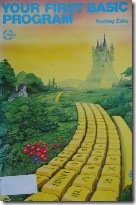My wife gets ‘O’, the Oprah magazine, and I have a bad habit of reading whatever is near me while I’m having breakfast and so found myself perusing an article where some celebrity such-and-such listed off the top influential books in their life which got me thinking of what mine would be. My list isn’t as deep or grand as theirs but it’s honest.
1. Stranger In A Strange Land
This book shaped a huge portion of how I view the world, religion, relationships, how to treated others and as a reminder to always question everything around me. Oh, and to laugh because sometimes that’s all we have. It introduced the new verb ‘grok’ into the nerd lexicon and to this day you’ll see it pop up anywhere nerds mingle. Stranded on a desert isle with only one book, this is it.
2. Perdido Street Station
A rich tapestry of weird with fine political stitching. A relatively new book compared to how long I’ve been reading but it still managed to work it’s way under my skin. It presented the concept of egalitarianism in a way that I hadn’t considered before and so thoroughly mixed genres that it was a real adventure to read. It came along at at time when I needed a jolt and this was just what the doctor ordered.
3. Hamlet
This will always hold a special place in my heart because of the memories I have of learning to read Shakespeare from my high school teacher Mr. Tosh. I’m sure that without the guided tour through Shakespeare’s language and the double and triple entendres I would have found this a rather dull read but instead I learned that just because something is old it doesn’t mean there isn’t bite or relevance and that some books should be read for their craftsmanship as well as their plot.
4. Your First Basic Program

This was the book that turned me into a software developer. I still remember the day my dad took me to the book store and helped me pick it out. I must have been all of 11 or 12 at the time and I’m pretty sure I picked it because of the really cool dragon illustrations on the inside and the big castle on the front. I read it cover to cover, over and over, until it was tattered and creased, all while learning the classic control, flow and looping constructs that every developer still uses to this day. In fact it wasn’t until the Gang of Four’s ‘Design Patterns’ that a single programming book had that much effect on me.
5. Acid House
Most people picking an Irvine Welsh book would probably go with Trainspotting but I never actually read Trainspotting, instead I read almost every other book he wrote and Acid House was the first one, the one I cut me teeth on learning to read his delightful written Scottish brogue. It begs to be spoken and I’d entertain myself for hours just reading passages outloud, chewing through brogue and feeling myself slightly transported to gritty Edinburgh streets. It was the first time a written brogue actually worked for me and I loved how much texture it added to the experience.
6. Towing Jehovah
I picked this up on a whim, mostly because of the quirky title, and ended up not only enjoying the story but viewing people’s relationships with religion in a different light. Having no strong religious affiliation myself I was exposed to some of the issues others struggle with as well as some very scary realizations about how certain people could act if they lost their faith. The concept of God being dead and having to be towed across the ocean was pretty much the perfect device to explore theology, culture and more without losing sight of the humor in life.
7. How To Be Good
I love this book because it highlights just how hypocritical we can be when we talk about how to cure the world of it’s ills. It slyly holds a mirror up to the reader with comical wit and satirical poking at what it means to be ‘good’ and how for as much as we talk about it how often we fail miserably. It got me thinking of my own actions and intentions and judgements and that maybe I shouldn’t cry foul on others before giving myself a good hard look. All done with of course the one element I need from any good book, humor.
I’m sure more will pop into my head but those are the ones that jumped out. I could of course go on and on with various books that I loved or just found greatly enjoyable, but I tried to pick books that actually had some impact on me besides just being a good read.
